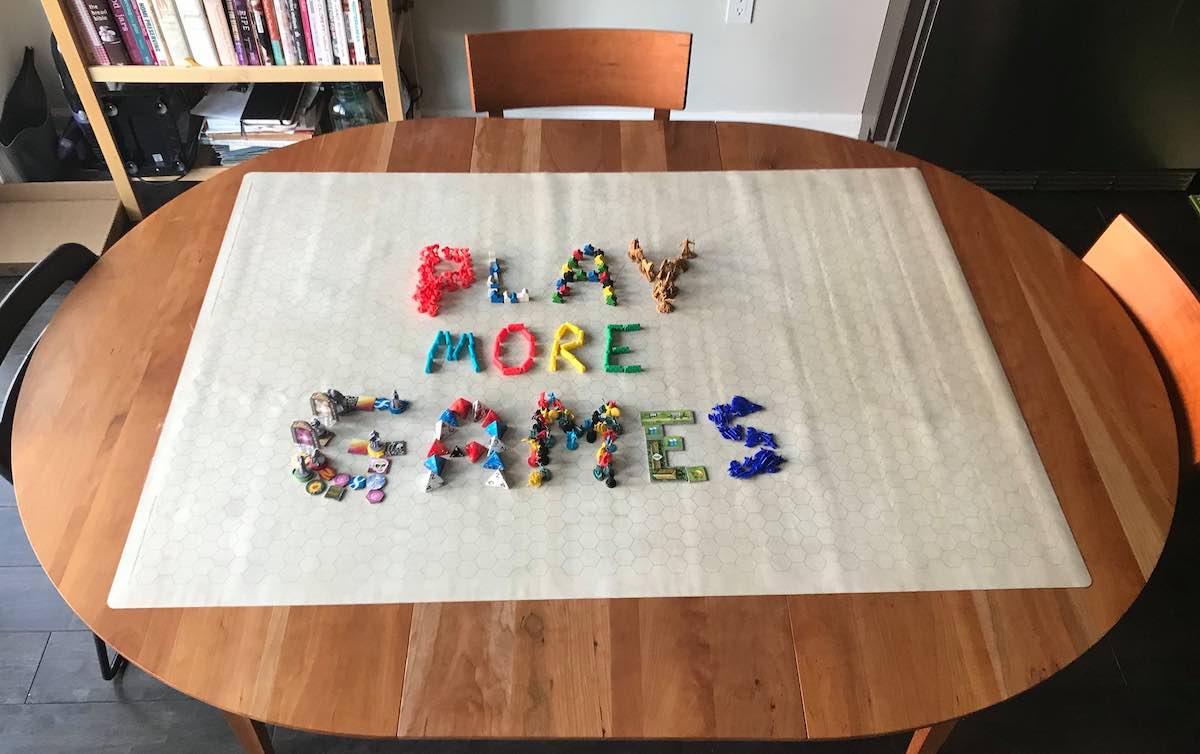
Thoughts on Community Gaming
Its time for me to start running games in the community. This has been going through my head for the past few years:
If not now, when? If not me, who?
The TL/DR version is that I’m going to open up my personal discord to folks I meet out in the community and try to build an inclusive group to play more games with, likely at a supportive friendly-local-gaming-store. To start: I am going to try running an experimental open-table RPG game of Teenage Mutant Ninja Crawl Classics. Learn more on that here.
But as someone with a great monthly home campaign, the irony of my situation is not lost on me.
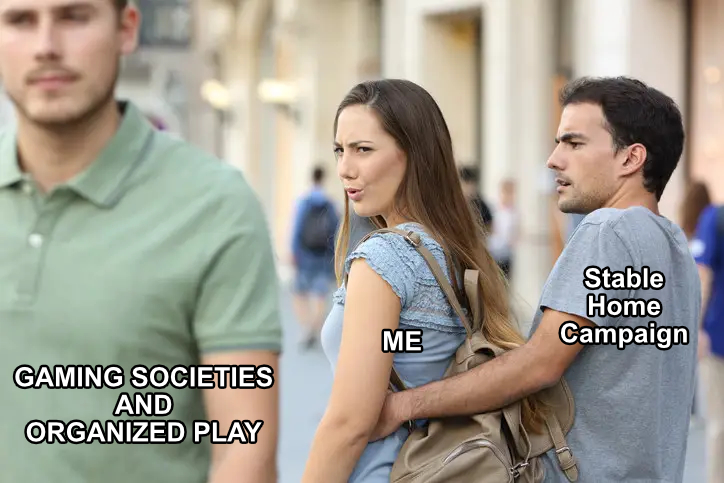
Memes are just an idea compression algorithm
What’s the Problem?
I’ve organized home games amongst my nerdy gaming friends for - well let’s just say for many years now. It is great. I am extremely lucky to have a stable gaming group of close friends. At the same time, seeing how other gamers organize has always been inspiring and made me a bit envious.
Communities, organized play societies, conventions, and clubs have lots going for them. Firstly, playing with new people is fun and exciting. You get to make new friends and get exposed to new ideas and styles of play, something hard to do in our world of urban isolation. Ideally, you also get a chance to partake in your social hobby in a lower-commitment environment - a Third Space. A lot has been said about how ‘men’ socialize shoulder to shoulder instead of face to face. While I am not saying that Western male culture and gaming culture are synonymous, I am a man and I am struggling with my ever-shrinking social circle.
However, there’s always been a downside to gaming away from the home kitchen table:
-
Playing at conventions means never playing with the same people twice (or so I’ve heard) and limiting hobby time to a few heavy weekends a year.
-
Sometimes organized clubs have too many rules. In undergrad, our university gaming society had a well-intentioned but dictatorial scheduling matrix that tried to control when a GM could run a game so that it wouldn’t interfere with large weekend LARPs. I was told I wasn’t allowed to play D&D on Fridays by people I had never met. Side note: That crisis ended years later on friendly terms by us launching a 30ish-person guerilla raid on their boffer weapon practice armed as a phalanx and dressed as ninjas. It did not go well for the LARPers. I have pictures.
-
I’ve been part of several board-game-night-with-friends, but they are hard to keep together and suffer the challenge of perpetually not knowing what game is going to be played or playing a game enough times with the same set of people to start exposing the true nature of a game’s rules.
-
Organized play sponsored by RPG publishers (I’m looking at you Adventurer’s League) have overly restrictive rules. These rules are meant to create needed guardrails and governance for a large open community that unfortunately hampers the creativity and infinite possibilities of the hobby. I tried it. It was fun but it’s not for me. The desire to run an MMO like persistent character in D&D reduces D&D to playing an ‘approved’ way to allow federation. As a GM, it just felt wrong.
Long story short - only playing at conventions or playing in the play society of a publisher’s marketing department isn’t something I want to commit my hard-earned free time to, especially as a GM. Additionally I don’t want to give up control of how I meet people and socialize to a profit oriented company.
Inspiration for a Solution
The demise of Facebook and Facebook Groups has made Discords and Creators the center of many self-organized communities. According to Jack Conte, the co-founder of Patreon, social media companies turned to algorithmic feeds to win the attention economy and ended the era of Web 2.0. His SXSW talk The Death of the Follower is good run through of the idea, even if at times the talk falls into tired patterns of para-social relationship creator-economies and doubling as a Patreon advertisement. I love being creative, but I don’t want to become a Creator. I DO NOT WANT my hobby and friends to turn into my job. At the same time, social media and creativity can become a magnet for discovery and helping people find like-minded folks. Discovery is needed for any open community to work
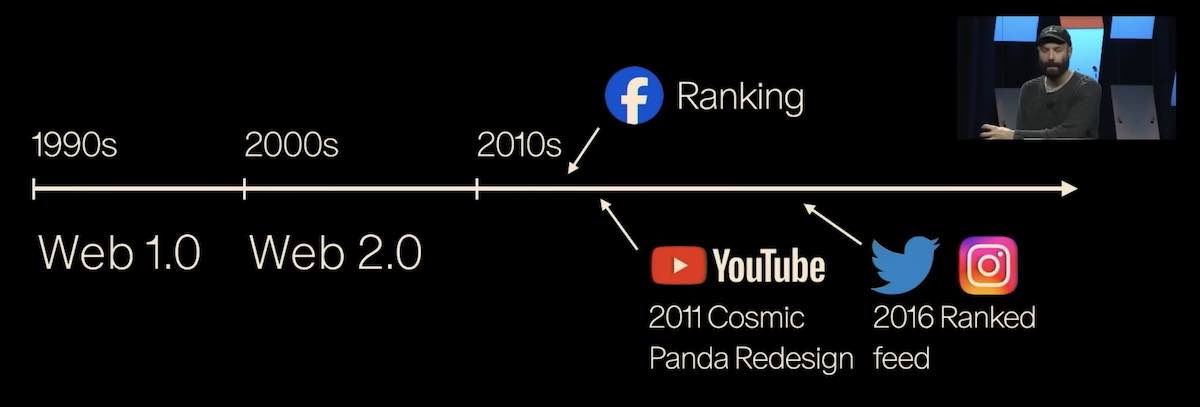
The Death of the Follower: Jack Conte explains the death of Web 2.0
There’s an interesting parallel occurring in the world of video game communities. Your average player of multi-player games is likely in a dozen Discord servers, happily dropping in and out of multiple channels, guilds, clans, sparring groups, and micro-communities. Because they keep a fresh flow of engaged people coming in, many communities are formed around the brands and of independent business people working as YouTubers, streamers, or other personality-as-a-business on the internet. I’ve participated as a casual member of multiple communities of players of a wild game called Star Citizen. Communities with popular Youtube or Twitch channels benefit greatly from easy discovery and recruiting.
The takeaway message: Micro-communities are becoming a safe third place but discovery is still needed
The path I want to take solidified when I watched a documentary on the early days of the RPG hobby, Secrets of Blackmoor. The documentary is a story from the war gaming group turned RPG campaign of Dave Arneson, and it struck me that the revolving-player big table game is something much closer to what I desire.

A documentary on early D&D through the eyes of the Dave Arneson gaming community
In the story, the founders of Dave Arneson’s group find each other by the founder reading the check-out history card in the front cover of a library copy of Strategos and then tracking down those like-minded strategy war gaming players in the local phone book. I’ve been part of hand-curated communities like these before. I played in a long-running Dreadball League where new players were recruited from cool people the host found through friends of friends and while running demos of games at local board game conventions. I met people I’m happy to call friends in that group. Even if some of them are bastards when they play competitive board games.
The takeaway message: Communities that don’t revolve around a company or stores require organizers. Someone’s got to do it.
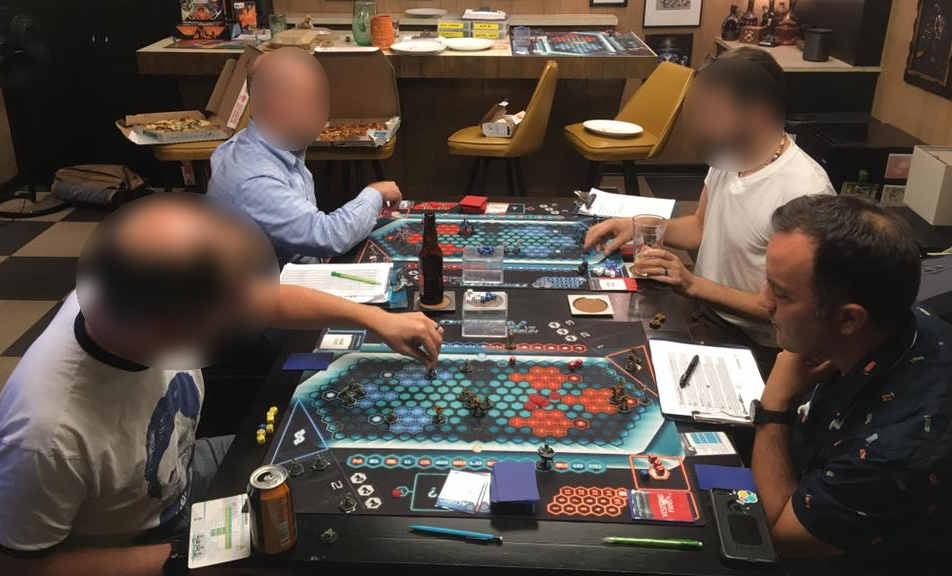
Dreadball is a sci-fi clone of Blood Bowl - I had lots of fun not winning in league play
What I’m going to try
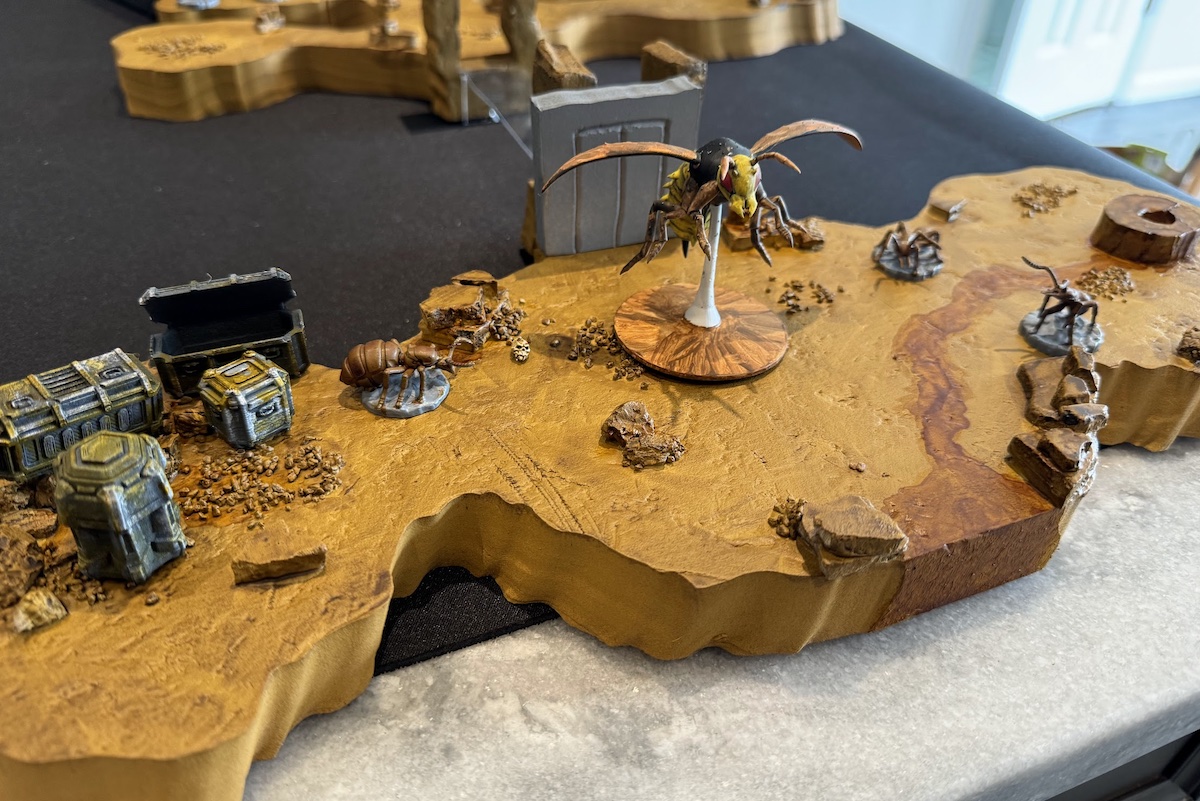
The first room of my convention game: Teenage Mutant Ninja Crawl Classics
- I am going to try being that community organizer by expanding the group of people I play with and where I play
- I’m going to try expanding my personal discord server to be an inclusive place for local gamers to meet
- I am going to run an occasional (monthly?) game at the friendly local gaming store.
I’m starting by running a one-shot of Teenage Mutant Ninja Crawl Classics - a reskin of Goodman Game’s Mutant Crawl Classics at Scrum Con in Silver Spring Maryland and starting to socialize what I’m doing to people who are not my immediate monthly gaming players. Let’s see what happens.
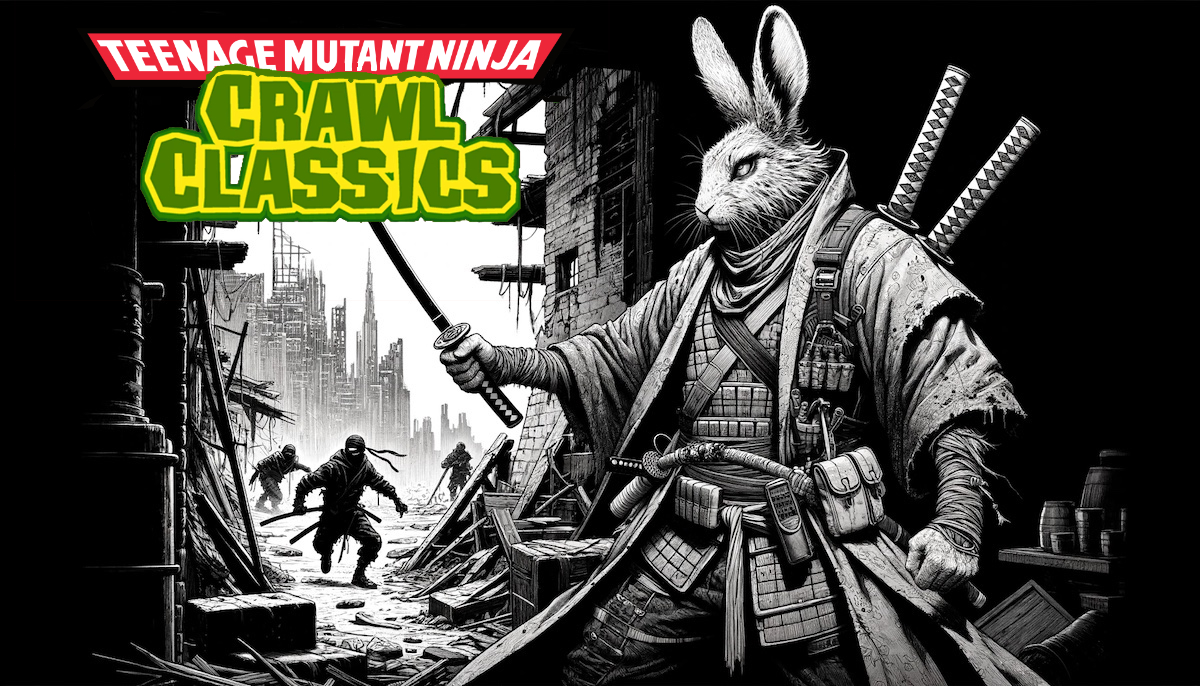
This either gets your blood pumping or it doesn't